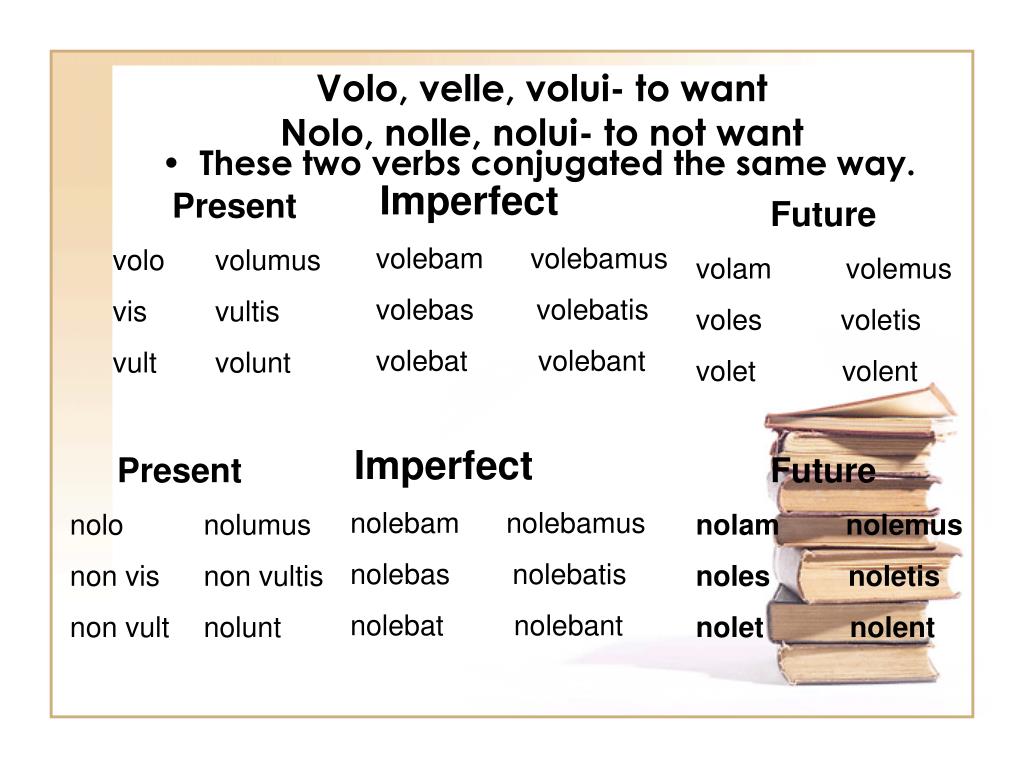
The present stem of your verb is the infinitive without the – _re ending. Latin verb conjugation “to be” Present Tenseįor regular verbs, there is a pattern that all conjugations follow:įirst, you need to find your present stem, which you do by looking at the infinitive form. The Latin word for “to be” is an example of an irregular verb that has been “driven” over many centuries by people using and changing the word. The car that is driven often (irregular verbs) will get dirty, dented, and change more time than the car left in the garage (regular verbs). One car stays in the garage and is driven once in a while and the other car is driven all the time. Why? Because you use them more frequently and they will change as people use them over time – this happens frequently with English verbs.Īs an analogy, imagine you have two cars. Typically irregular verbs are the verbs that are most commonly used. Irregular “To Be” – ( Sum, Esse, Fui, Futurus) – Present Tense The number refers to whether the verb is singular (I, You, S/he/it) or plural (We, You all, They). Person is broken down into First Person (I, We), Second Person (You, You all), and Third Person (S/he/it, They). While you do not need them, keep in mind when conjugating a verb, it will be organized according to person and number. So to say “I love” in Latin, all you need is the correct form of the verb: amo. In Latin, a subject is only used for emphasis. In English, if you wanted to say “I love” you need to use “I” for the sentence to be complete. Something that does set Latin apart from many Romance languages is that they have no need to include a subject or personal pronoun. Latin verb conjugation chart Optional Personal Pronouns? Yes, Please!

You can see the first principal part ends in an -io, but the infinitive and second principal part end in the third conjugation -ere. There are verbs whose first principal part ends in an -io.Īn example of this sub-conjugation is the verb iacio, iacere, ieci, iactus. **Take note: there is a subcategory of the -ere 3rd conjugation, called the Third -io conjugation. See the chart below to see all conjugations.
Latin verb endings how to#
These conjugations help you determine how to form the verb based on its unique pattern. Since it ends in an -are, it is a part of the first conjugation. There are four forms of the infinitive: -are, -ēre, -ere, -ire.įor the verb “to love” ( amo, amare, amavi, amatus) you would look at amare. When looking at the dictionary form or principal parts of a verb, you will look at the form that ends in -re.

You can recognise a verb’s conjugation based on its infinitive form. Latin verbs fit into one of four conjugations. So in English, you may be told “conjugate ‘to love.’” In response, you would say: “I love, you love, s/he/it loves, we love, you all love, they love.” Boom – conjugated.īack to Latin.

This essentially means that your instructor wants you to give all forms of the verb in a particular tense. If you're learning Latin in school, you may be asked to “conjugate” a verb. What Is Latin Verb Conjugation?īefore going further, what even is a conjugation? Technically a conjugation is just a grouping of verbs that are similar based on patterns in endings and how they are formed.
Latin verb endings free#
If you’re ready to get started, click here for a 7-day FREE trial. With Latin Uncovered you’ll use my unique StoryLearning® method to learn Latin naturally through story… not rules. However, the best way to cope with this trying part of speech is to get to know this demon and exorcise it!īy the end of this post, you'll not only know what conjugation is and how to conjugate a verb but you'll also be equipped with tips and tricks that will help make verb conjugations as easy as unus, dua, tres.īy the way, if you want to learn Latin fast and have fun while doing it, my top recommendation is Latin Uncovered which teaches you through StoryLearning®. You have infinite tenses, voices, and oh so many irregularities and exceptions to the rule. Verbs can be tricky in any language and when you learn Latin, you'll soon see that Latin verb conjugation is no different.


 0 kommentar(er)
0 kommentar(er)
